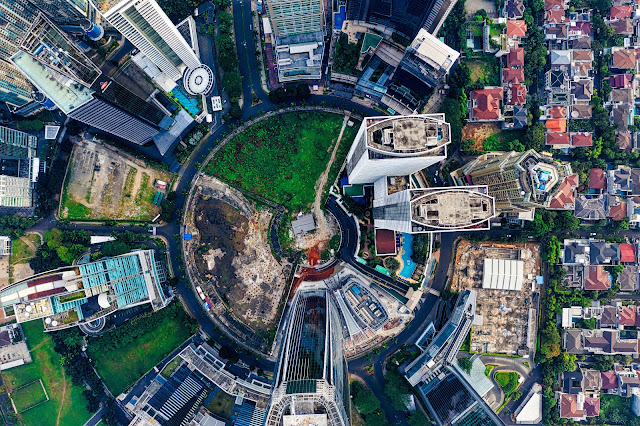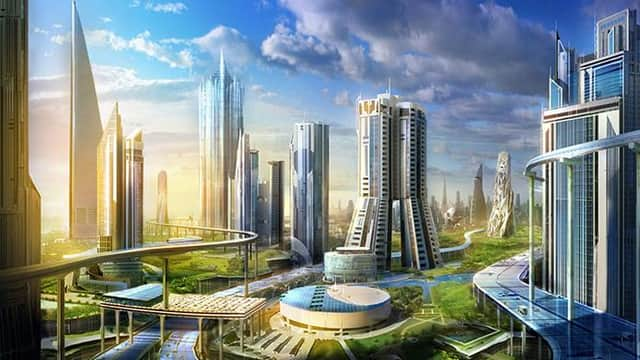Smart cities are urban areas that use technology and data to improve the quality of life for residents, reduce environmental impact, and promote economic growth. The rise of smart cities has been driven by the increasing availability and affordability of technology, as well as a growing awareness of the challenges facing urban areas, such as traffic congestion, air pollution, and energy consumption.
Singapore
One example of a city where smart technology has been successfully implemented is Singapore. The city-state has been a leader in the development of smart city technology, with a focus on using data and technology to improve transportation and reduce congestion. For example, Singapore has implemented a system of electronic road pricing that charges drivers for the distance they travel, which has helped to reduce traffic congestion and emissions. The city also has a comprehensive public transportation system that uses real-time data to optimize routes and reduce waiting times for buses and trains.
Barcelona
Another example of a city that has successfully implemented smart technology is Barcelona, Spain. The city has implemented a variety of smart city initiatives, including a network of sensors that monitor air quality, traffic, and noise levels, as well as a system of smart streetlights that can be controlled remotely and adjust their brightness based on the time of day and level of pedestrian traffic. In addition, the city has developed a mobile app that allows residents to access real-time information on public transportation and receive alerts about traffic and public events.
Smart Cities in the near future
There are many cities around the world where the technology
is being implemented or planned to be implemented in the near future. For
example, New York City is planning to establish a network of sensors and
cameras to streamline traffic flow and ease traffic congestion, and also a
system of streetlights that can be controlled remotely and adjust their
luminosity according to the time of day and the number of pedestrians.
Similarly, London, United Kingdom is also planning to implement a system of
smart streetlights that can be controlled remotely and adjust their brightness
based on the time of day and level of pedestrian traffic, a network of sensors
to monitor air quality and traffic, and a platform that allows residents to
access real-time information on public transportation and receive alerts about
traffic and public events.
Neom City
One of the most ambitious smart city projects is Neom City, a planned city in Saudi Arabia that will be fully powered by renewable energy, with an emphasis on utilizing technology and data to enhance the daily living experience for inhabitants. The city will feature state-of-the-art transportation systems, including autonomous vehicles, and will be designed to reduce dependence on fossil fuels. The city will also have a focus on sustainability, with plans to implement systems for recycling and waste management, as well as green spaces and parks.
The rise of smart cities has the potential to bring many benefits to urban areas, including improved quality of life for residents, reduced environmental impact, and increased economic growth. However, it is important for cities to be transparent about the data they collect and how it is used, and to involve residents in the planning and implementation of smart city initiatives to ensure that they are responsive to their needs and preferences.In conclusion, smart cities are urban areas that use technology and data to improve the quality of life for residents, reduce environmental impact, and promote economic growth. Cities such as Singapore and Barcelona have successfully implemented smart technology to improve transportation, reduce congestion, and monitor and improve the environment. Many other cities around the world, including New York City, London, and Neom City in Saudi Arabia, have plans to implement smart city technology in the near future.
The benefits of smart cities are numerous, including
improved transportation and reduced congestion, better monitoring and
management of the environment, improved delivery of city services, and
increased economic growth. However, it is important for cities to be
transparent about the data they collect and how it is used, and to involve
residents in the planning and implementation of smart city initiatives to
ensure that they are responsive to their needs and preferences. Additionally,
it is important to consider privacy and security issues related to the
collection and use of data, and to ensure that the data is used responsibly and
ethically.
While smart cities are not without their challenges, the potential benefits are significant. The use of technology and data can help cities become more efficient, sustainable, and livable for their citizens. The future looks bright for smart cities as technology continues to advance and cities around the world continue to adopt and implement smart city solutions.






0 Comments